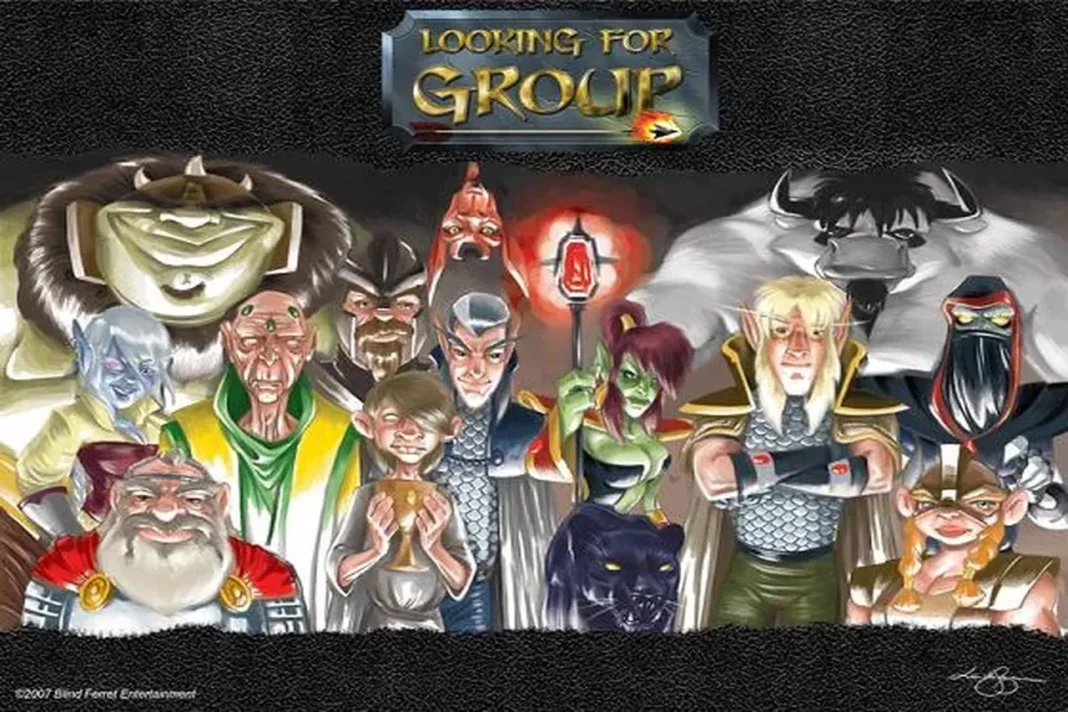LFG, an acronym that has become increasingly popular in text conversations, stands for “Looking for Group.” This abbreviation is commonly used in online gaming communities and social platforms where individuals seek to connect with others for a shared gaming experience. Whether it’s a quest, a raid, or a competitive match, LFG serves as a call-out for players who are ready to team up and tackle challenges together.
In the digital age, where virtual connections are prevalent, the lfg meaning in text has extended beyond gaming. It has evolved into a versatile expression used in various contexts, such as organizing social events, finding study groups, or even searching for travel companions. With just three simple letters, LFG encapsulates the desire for collaboration, camaraderie, and shared experiences in both the gaming and real-world realms.
As the lfg meaning in text continues to gain traction, it has become a powerful tool for fostering connections and building communities. In this article, we will delve deeper into the significance of LFG, exploring its origins, popular usage, and the impact it has had on online interactions. So, whether you’re a seasoned gamer or simply curious about the evolving language of the digital age, join us as we uncover the meaning behind LFG in text conversations.
Origins of LFG in Text
The acronym “LFG” originated in online gaming communities as a way for players to express their desire to team up with others for a shared gaming experience. However, its usage has expanded beyond gaming and is now commonly used in various contexts such as organizing social events, finding study groups, or searching for travel companions. The term “LFG” has become a shorthand way to communicate a need for collaboration or connection, forming an important part of online interactions.
Popular Usage of LFG in Online Gaming Communities
“LFG”, which stands for “Looking for Group”, has become a widely recognized acronym in online gaming communities. It is used as a shorthand way to express a desire to team up with others for a shared gaming experience. The term has gained popularity among gamers as a means to quickly find teammates and enhance gameplay.
In online gaming communities, “LFG” is commonly used in various contexts, such as multiplayer games or raids where players need to form groups to accomplish specific objectives. By using “LFG”, gamers can quickly connect with like-minded individuals who are interested in teaming up for a particular game or mission.
The popularity of “LFG” has transcended gaming and is now being used in other online communities, such as organizing social events, finding study groups, or searching for travel companions. The acronym has become a symbol of collaboration and connection, enabling individuals to easily express their need for collaboration or to join an existing group for a specific purpose.
By adopting “LFG”, online gaming communities have been able to foster connections and build communities where players can find others who share their interests and goals. The simplicity and versatility of the acronym have paved the way for enhanced collaboration and social interaction within the gaming world.
Overall, “LFG” has revolutionized the way gamers connect and collaborate, extending its influence beyond gaming and into various other online communities. Its impact on facilitating teamwork and community building is undeniable, making it a vital part of the online gaming experience.
LFG Beyond Gaming: Expanding Contexts
LFG Beyond Gaming: Expanding Contexts
In addition to its origin in online gaming communities, the acronym “LFG” has gained traction in a variety of other contexts, extending its meaning beyond the gaming realm. This widespread adoption showcases the versatility and impact of “LFG” as a shorthand way of expressing a need for collaboration or connection.
Applications and Categories of LFG
The usage of “LFG” has expanded to diverse spheres, including social events, study groups, and travel companions. Here are some examples of how “LFG” is being utilized in these different contexts:
- Organizing Social Events: Individuals use “LFG” to express their interest in finding companions for outings or gatherings. Whether it’s a group dinner or a hiking trip, “LFG” helps connect like-minded people with shared interests.
- Finding Study Groups: Students often use “LFG” to find study partners or form study groups. By leveraging the power of collaboration, “LFG” facilitates knowledge sharing and enhances the learning experience.
- Searching for Travel Companions: People seeking travel partners can use “LFG” to connect with others who share their wanderlust. It allows individuals to find reliable companions for their adventures and fosters a sense of community among globetrotters.
Enhancing Collaboration and Building Communities
The widespread adoption of “LFG” across various online communities has resulted in enhanced collaboration and community building. By using “LFG,” individuals can easily convey their desire for teamwork, fostering connections with like-minded individuals who share similar goals or interests.
Future Developments and Trends
As online communities continue to grow and evolve, the usage of “LFG” is expected to expand further. The convenience and efficacy of “LFG” as a communication tool make it likely to remain a prominent part of online interactions. Its potential for creating connections and building communities will likely continue to be harnessed in innovative ways.
Related Concepts
While “LFG” remains the widely recognized acronym for expressing a need for collaboration, there are some variations and related concepts that exist within specific communities. However, these variations often integrate with or diverge from the core concept of “LFG,” depending on the specific community’s preferences and conventions.
The Impact of LFG on Online Interactions
LFG, with its versatile meaning of “Looking for Group,” has significantly impacted online interactions. By providing a shorthand way to express a need for collaboration or connection, LFG has revolutionized the way people engage in various online activities. Here are some factors that contribute to its impact:
1. Enhanced Collaboration: LFG enables individuals to find like-minded peers quickly, forming cohesive groups for gaming, studying, or other activities. This promotes teamwork, communication, and knowledge-sharing within online communities.
2. Community Building: LFG fosters the creation of vibrant online communities where individuals can easily connect and socialize. It brings together people with similar interests or goals, strengthening relationships and creating a sense of belonging.
3. Efficient Resource Allocation: LFG eliminates the need for lengthy searches or waiting times, as individuals can swiftly find others who match their requirements. This streamlines the process of organizing events, study groups, or even finding travel companions.
4. Global Reach: LFG transcends geographical boundaries, allowing people from different parts of the world to connect and collaborate. This expands opportunities for cultural exchange and diversity within online communities.
5. Future Developments: As online communities continue to grow, the usage of LFG is expected to expand further. Platforms and apps dedicated specifically to LFG are emerging, offering more streamlined experiences for users.
While LFG remains the widely recognized acronym for expressing a need for collaboration, variations and related concepts exist within specific communities. These variations may adapt the LFG concept to suit their specific needs or preferences.
Overall, the impact of LFG on online interactions cannot be overstated. It has revolutionized collaboration, community building, and resource allocation within online communities, opening up new possibilities for connection and engagement.
Conclusion
The acronym “LFG” has undoubtedly transformed the way people interact and collaborate online. By providing a concise and efficient way to express the need for collaboration or connection, LFG has become a powerful tool within online communities. It has facilitated the formation of communities, enhanced resource allocation, and enabled individuals from different parts of the world to connect and collaborate.
As online communities continue to expand, the usage of LFG is expected to grow even further. Its impact has transcended geographical boundaries, allowing individuals with shared interests or goals to come together and achieve collective objectives. Moreover, variations and related concepts of LFG have emerged within specific communities, showcasing the adaptability and versatility of this concept.
LFG has played a significant role in opening up new possibilities for connection and engagement in the online world. It has revolutionized the way people collaborate and has become an integral part of online interactions. As technology continues to evolve, LFG will likely continue to shape the future of online communities and foster meaningful connections among individuals.
Frequently Asked Questions
What does “LFG” stand for?
“LFG” stands for “Looking for Group.” It is an acronym commonly used in online gaming and other online platforms to express the desire to find a group of people to collaborate or play with.
How has “LFG” impacted online interactions?
“LFG” has revolutionized online interactions by providing a shorthand way to express the need for collaboration or connection. It has enhanced collaboration, community building, and efficient resource allocation within online communities. It has also allowed people from different parts of the world to connect and collaborate, transcending geographical boundaries.
Will the usage of “LFG” continue to grow?
Yes, as online communities continue to grow, the usage of “LFG” is expected to expand further. The concept of seeking collaboration or connection in online platforms is becoming increasingly popular, and “LFG” provides a convenient way to express that need.
Are there variations of “LFG”?
Yes, variations and related concepts of “LFG” exist within specific communities. These variations adapt the concept to suit their specific needs or preferences while still conveying the desire to find a group for collaboration or connection.





